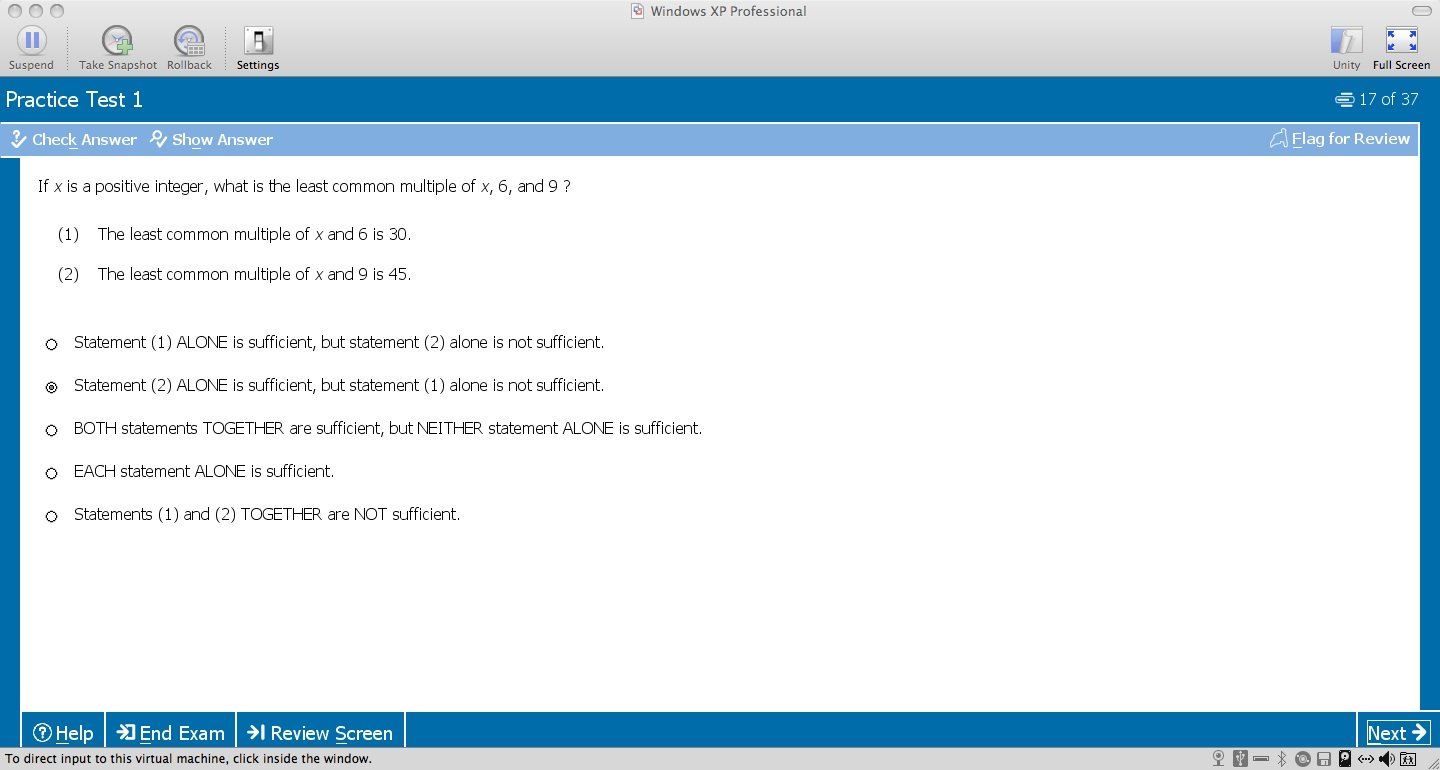Events & Promotions
|
|

GMAT Club Daily Prep
Thank you for using the timer - this advanced tool can estimate your performance and suggest more practice questions. We have subscribed you to Daily Prep Questions via email.
Customized
for You
Track
Your Progress
Practice
Pays
Not interested in getting valuable practice questions and articles delivered to your email? No problem, unsubscribe here.
- Nov 20
07:30 AM PST
-08:30 AM PST
Learn what truly sets the UC Riverside MBA apart and how it helps in your professional growth - Nov 22
11:00 AM IST
-01:00 PM IST
Do RC/MSR passages scare you? e-GMAT is conducting a masterclass to help you learn – Learn effective reading strategies Tackle difficult RC & MSR with confidence Excel in timed test environment - Nov 23
11:00 AM IST
-01:00 PM IST
Attend this free GMAT Algebra Webinar and learn how to master the most challenging Inequalities and Absolute Value problems with ease. - Nov 25
10:00 AM EST
-11:00 AM EST
Prefer video-based learning? The Target Test Prep OnDemand course is a one-of-a-kind video masterclass featuring 400 hours of lecture-style teaching by Scott Woodbury-Stewart, founder of Target Test Prep and one of the most accomplished GMAT instructors.
Kudos
Bookmarks
D
Be sure to select an answer first to save it in the Error Log before revealing the correct answer (OA)!
Difficulty:
 35%
(medium)
35%
(medium)
Question Stats:
69% (01:34) correct 31%
(01:48)
wrong
31%
(01:48)
wrong  based on 1823
sessions
based on 1823
sessions
History
Date
Time
Result
Not Attempted Yet
If x is a positive integer, what is the least common multiple of x, 6 and 9?
(1) The least common multiple of x and 6 is 30.
(2) The least common multiple of x and 9 is 45.

q1.jpg [ 84.4 KiB | Viewed 15348 times ]
(1) The least common multiple of x and 6 is 30.
(2) The least common multiple of x and 9 is 45.
Attachment:
q1.jpg [ 84.4 KiB | Viewed 15348 times ]
Kudos
Bookmarks
GMAT TIGER
LCM(5,6,9)=90; LCM(10,6,9)=90; LCM(15,6,9)=90; LCM(30,6,9)=90;
Sufficient
GMAT TIGER
the same. Sufficient
Hey, guys, is it rule? LCM(a,b,c)=LCM(LCM(a,b),c) ?
If yes, we can use it:
1) LCM(x,6,9) = LCM(30,9)=90
2) LCM(x,6,9) = LCM(45,6)=90
D
Kudos
Bookmarks
walker
Exactly Walker, this is the short cut rule. LCM(a,b,c)=LCM(LCM(a,b),c).
From stmt1, it LCM of 2 numbers(x,6) is given as 30. So LCM 3 numbers is LCM(30,9). Sufficient.
From stmt2, again same explanation as stmt1.
Initially I tried to find what is x from stmt 1 and then find the LCM of 3 numbers. THis is time consuming when the ans can be picked in less than 30 sec.
I raised this question, since I wanted to know in how ways can people solve the question.
As GMAT TIGER did, trying to find the x value rather than finding the LCM.
No offense, just analysing where all there are possibilities that things can go wrong and that we should be cautious.










